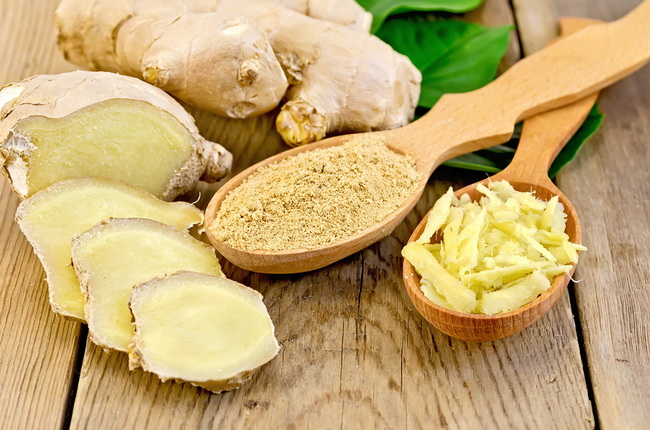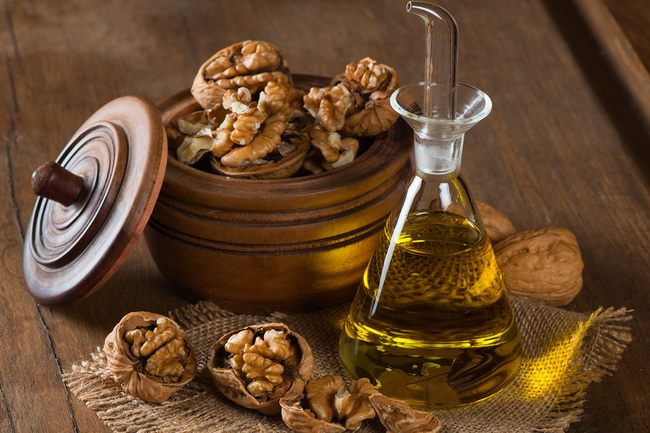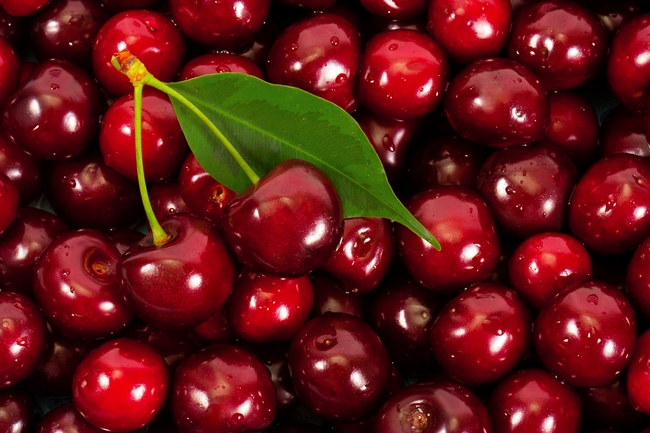- Make It Yourself Lavender Heart-Shaped Bath Bombs!
- 20 Things You Never Knew About “Down There”
- 12 Best Foods For Those Suffering From Arthritis Pain
- 12 Personal Hygiene Mistakes Almost Everyone Makes (Mom Never Told You About #4!)
- 15 Medicinal Plants And Herbs From The Cherokee People
- 12 Mind-Blowing Benefits Of Drinking Coconut Water During Pregnancy
- 12 Outstanding Winter Foods That Won’t Fatten You Up Like A Christmas Turkey
12 Foods That Prevent Inflammation And Help You To Heal

Photo credit: bigstock.com
With all the recent talk about inflammation, you would imagine it to be the Terminator of the body. However, inflammation is a natural part of your body’s natural immune system response which immediately sends out word that there has been an injury to the body. Inflammation sounds the alarm so that your body can send white blood cells to the necessary area to heal wounds, stop infections, and heal tissue damage.
The problem with inflammation is that sometimes, it doesn’t know when to stop. Chronic inflammation causes a wide variety of health problems including diabetes, Alzheimer’s, heart disease, and cancer. The key to reducing inflammation in your body begins with your diet.
There are numerous foods which prevent and even stop inflammation so that you can avoid common health problems. Symptoms of chronic inflammation are frequent headaches, loss of appetite, muscle stiffness, loss of energy, chills, fever, and persistent diarrhea.
If you want to avoid most of the health problems that are associated with chronic inflammation, such as rheumatoid arthritis, Alzheimer’s, Crohn’s disease, IBD, hay fever, celiac disease, periodontitis, acne, asthma, atherosclerosis, ulcerative colitis, arthritis, and cancer, then you need to change your diet to get your inflammation under control.
Keep reading and find out the best 12 foods you should be eating more of every day.
1. Shiitake Mushrooms
These types of mushrooms contain powerful compounds, such as ergothioneine, which inhibit oxidative stress and inflammation. They also have some unique nutrients that most Americans do not get enough of in their regular diet. One of these nutrients is copper, which is one of the few metallic elements which are essential to our health. Your body cannot synthesize copper, so you must get it from your food. A deficiency in copper can also be a factor in the development of heart disease, along with inflammation.
2. Olive Oil
This oil can offer you terrific protection from inflammation due to its highly beneficial compounds, one of which is oleocanthal. Current Pharmaceutical Design published a study in 2011 which showed that extra virgin olive oil prevents the body from making COX-1 and COX-2 enzymes, which trigger inflammation. Always opt for extra virgin olive oil. This type of olive oil can reduce the overall risk of developing diabetes or degenerative joint disease which gets its start through chronic inflammation. Warm some olive oil for use as a massage oil to help stop the pain and swelling of arthritis. You can add some essential oils, such as lavender or chamomile, to olive oil to add extra inflammation fighting power!
3. Tea
Although all types of herbal teas have their benefits, matcha green tea and tulsi are both loaded with healthy anti-inflammatory antioxidants that support the immune system and healthy heart function. Matcha green tea from Japan has as much as 17 times the antioxidant power of blueberries and more than 7 times the power of dark chocolate. Tulsi (sometimes called holy basil) also has tons of antioxidant power, as well as micronutrients that support proper function of the immune system.
Continue to Page 2

Photo credit: bigstock.com
4. Ginger
One of the active ingredients in this spice, gingerol, has powerful anti-inflammatory compounds. The Journal of Medicinal Food published a study in 2005 which found that ginger influences particular inflammatory processes, which makes it a very effective agent in fighting chronic inflammation. In this study, persons who had rheumatoid or osteoarthritis spoke about a noticeable reduction in pain and swelling, as well as improved joint mobility after regular drinking of ginger tea. Consuming ginger tea two or more times each day ca reduce inflammation significantly. You can also massage affected joints with ginger oil twice per day. Ginger supplements are also available. Consult with your doctor for proper dosage.
Please note that ginger does thin the blood, so speak with your doctor before consuming especially if you are taking blood thinners or any other type of prescription medication.
5. Blueberries
Blueberries contain powerful phytonutrients, like anthocyanins, hydroxybenzoic acid, and hydroxycinnamic acid, along with flavonols, which work as both anti-inflammatory and antioxidants once consumed. Phytonutrients reduce inflammation by increasing the functionality of important nutrients to reach our cells. Regular consumption of these little fruits reduce the risk of developing arthritis, intestinal inflammation and colitis. A simple ½ a cup of blueberries each day is enough to greatly diminish inflammation in the body.
6. Turmeric
This popular spice commonly used in Indian dishes is well-known for being an inflammation super fighter. Curcumin is the active ingredient in turmeric, and according to one study published in the Journal of Alternative and Complementary Medicine in 2003, curcumin slows down different molecules, all of which play an important role in developing inflammation. This spice has even been shown to inhibit inflammation in the brain, which is one of the key drivers behind Alzheimer’s disease. Add 1 tablespoon of turmeric to a glass of milk and drink this each day or consider taking supplements. Supplements should only be taken under your doctor’s supervision.
Continue to Page 3

Photo credit: bigstock.com
7. Walnuts
Walnuts are high in ALA, which is an omega-3 fatty acid that can significantly reduce inflammation in the body. In fact, one study, published in the Journal of Nutrition, found that those who consumed at least 2 ounces of walnuts each day had reduced levels of inflammatory markers, such as CRP. High levels of CRP have been linked to heart disease. Eating more nuts, like walnuts, can help prevent chronic diseases that get their start in inflammation such as arthritis, Alzheimer’s, and heart disease. An easy way to consume walnuts is to soak them in water overnight, then eat them as a snack or add them to your morning smoothie or oatmeal.
8. Garlic
The Journal of Medicinal Food published a study in 2012 which found that several of the active ingredients in garlic have powerful anti-inflammatory potential. Another study identified more than 4 different sulfur containing agents in garlic which inhibit the pathways that lead to inflammation. Try to eat 2 or 3 raw cloves of organic garlic each day. If that is too strong for you, try chopping raw garlic into your salads and stir fry to help stop inflammation.
9. Spinach
Popeye knew what he was talking about. Spinach can not only prevent inflammation from getting a foot hold, but it can reduce existing inflammation as well. This veggie has tons of carotenoids which work like antioxidants that stop inflammation in its tracks. Spinach also contains cytokines, which protect the body from inflammation. Like walnuts, spinach is also a good source of ALA, which reduces inflammation levels, and the pain that accompanies it. Studies have shown this leafy green can reduce asthmatic inflammation, migraine headaches, and arthritis pain. Try baby spinach in your salads if you find that regular spinach too tough or stringy. Baby spinach is softer and easier to chew.
Continue to Page 4

Photo credit: bigstock.com
10. Tart Cherries
We aren’t talking about sweet cherries, like Bing cherries, but we mean those sour cherries! The kind that makes you pucker your lips a bit when you eat them. Regular consumption of tart cherries (or cherry juice) consumed a week before a strenuous exercise event, such as a marathon, helped to reduce post-exercise muscle pain and inflammation, according to a 2010 study done at the Oregon Health and Science University. Researchers suggest eating 1.5 cups of tart cherries every day or drinking 1 cup of pure cherry juice. Look for unsweetened juice made from organic tart cherries to get the most anti-inflammation bang for your buck.
11. Purple Sweet Potatoes
Although regular orange sweet potatoes have gained their own anti-inflammation reputation, purple sweet potatoes are the king! The Journal of Medicinal Food published a study in 2011 which reports that these vegetables have powerful anti-inflammatory properties thanks to their high concentration of vitamins E and C, along with beta-carotene, alpha-carotene, and other nutrients. All of which reduce inflammation and the pain that goes along with it. Eating sweet potatoes regularly can reduce inflammation in the nerves and brain tissue as well, so try to eat 1 cup of sweet potatoes on a regular basis. Don’t forget that sweet potatoes make terrific baked fries, chips, cookies, pancakes, and are a great replacement for plain old mashed potatoes. If you can’t find purple sweet potatoes at your supermarket, don’t worry, the regular orange ones will do just fine!
SEE ALSO: 15 of the Best Anti-Inflammatory Herbs and Spices on the Planet
12. Fish
Salmon, mackerel, tuna, and other types of cold water fish are high in omega-3 fatty acids, which are well-known to reduce inflammation. Numerous studies show that omega-3s play a vital role in reducing cytokines in the body, which are the compounds known to trigger inflammation. Aim to make salmon or other fatty cold water fish a part of your diet 2 to 3 times each week. If you aren’t a fan of fish, you can always take a fish or krill oil supplement. Talk to your doctor about the proper dosage for your condition.
It’s important to realize that dietary components can either prevent inflammation or trigger inflammation in your body, so avoid processed foods, high fructose corn syrup, soy, GMO foods, and other chemically filled foods with artificial ingredients.
References:
































